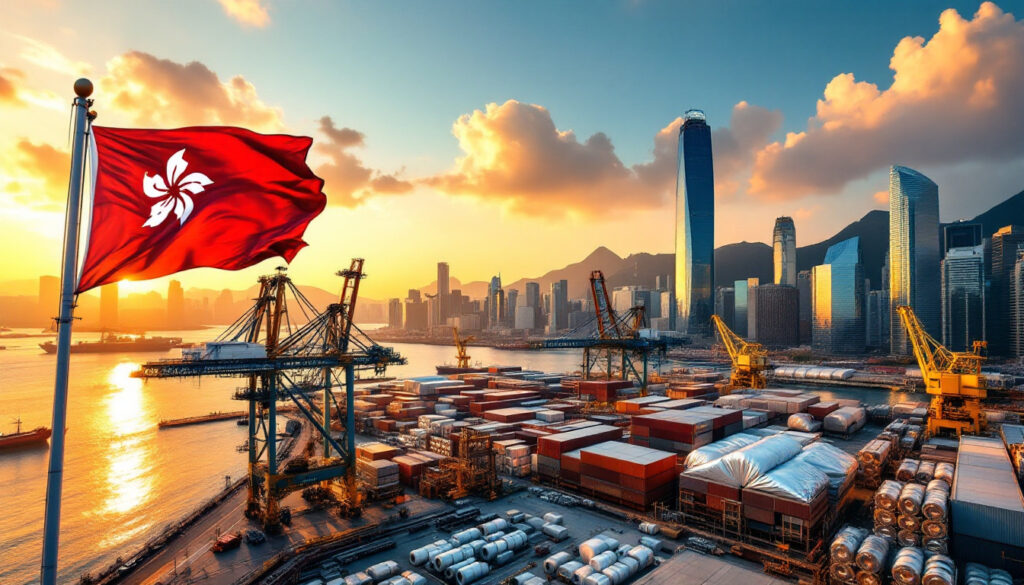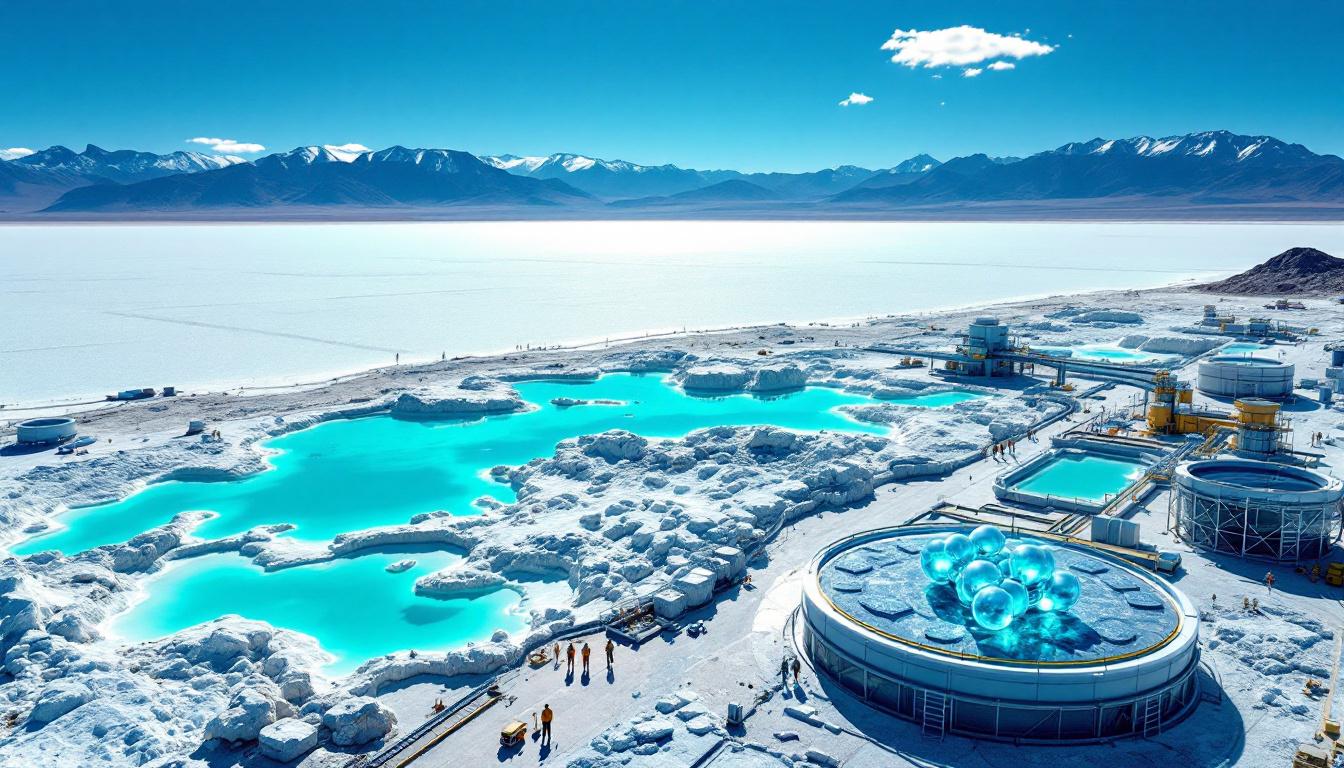London Metal Exchange Approval in Hong Kong: Gateway to China's Metal Market
The London Metal Exchange (LME), owned by Hong Kong Exchanges and Clearing Limited (HKEX), has taken a landmark step by approving four warehouse facilities in Hong Kong, marking a strategic expansion into proximity with mainland China—the world's largest metals consumer. Announced on April 15, 2025, this move enables the storage of seven LME-approved metals within three months, positioning Hong Kong as a critical intermediary for global metal traders seeking access to Chinese markets. Industry leaders, including LME CEO Matthew Chamberlain and Hong Kong's Secretary for Financial Services Christopher Hui Ching-yu, emphasize the decision's role in bolstering the city's status as a financial and logistics hub while bridging international supply chains with Chinese demand.
What is the London Metal Exchange (LME) and Why Does Hong Kong Approval Matter?
Understanding the London Metal Exchange
The LME, established in 1877, operates as the world's premier venue for industrial metals trading, facilitating over $15 trillion in annual transactions across 14 approved metals, including copper, aluminum, and zinc. Its acquisition by HKEX in 2012 laid the groundwork for synergies between Asian market access and Western trading infrastructure. The approval of Hong Kong warehouses represents the first physical expansion of LME's storage network into a territory adjacent to mainland China, addressing longstanding logistical bottlenecks in metal delivery.
Strategic Significance of Hong Kong Warehouse Approval
China accounts for approximately 54% of global base metal consumption, driven by construction, manufacturing, and renewable energy sectors. Prior to this approval, LME warehouses were concentrated in South Korea, Taiwan, and Singapore, requiring Chinese buyers to incur additional costs and delays for imported metals. By situating warehouses in Hong Kong—a Special Administrative Region with streamlined customs protocols—traders gain direct access to storage facilities near Guangdong's manufacturing clusters, reducing transit times by up to 72 hours.
How Will the LME Warehouses Function in Hong Kong?
Operational Timeline and Capacity
The four approved facilities, operated by global logistics firms, will commence operations by July 2025, offering an initial combined capacity of 500,000 metric tons. This phased rollout aligns with LME's risk management protocols, ensuring compliance with its stringent warehousing standards. The initial seven metals include copper, aluminum, zinc, and nickel—critical to electric vehicle (EV) and infrastructure sectors—with plans to expand to all 14 LME-approved metals by 2026.
Metal Trading and Physical Exchange Infrastructure
Hong Kong's warehouses will adopt LME's electronic warrant system, enabling real-time tracking of metal inventories and seamless transfer of ownership across borders. This system reduces counterparty risks and enhances liquidity, as traders can swiftly respond to arbitrage opportunities between Asian and European pricing benchmarks. For example, copper market dynamics could see significant shifts as copper stored in Hong Kong could be sold to a European buyer with delivery obligations fulfilled via the LME's network in Rotterdam.
What Benefits Will This Bring to Hong Kong's Economy?
Strengthening Hong Kong as a Financial Hub
Hong Kong's commodities trading volume is projected to grow by 18% annually following the approval, generating an estimated $2.1 billion in auxiliary financial services revenue by 2030. The warehouses will attract hedge funds, smelters, and insurers, cementing the city's role in Asia's commodity derivatives market. Secretary Hui highlighted that over 40 multinational firms have already expressed interest in establishing regional offices in Hong Kong to leverage the new infrastructure.
Impact on Trade and Logistics Sectors
The Hong Kong Monetary Authority anticipates 12,000 new jobs in metals trading, quality assurance, and freight management by 2027. Additionally, the city's port authorities are upgrading customs clearance systems to accommodate a projected 25% increase in metal cargo throughput, prioritizing automated document verification and blockchain-based provenance tracking.
What Do Industry Leaders Say About This Development?
Expert Perspectives on the Approval
Matthew Chamberlain noted that Hong Kong's unique "one country, two systems" framework allows it to serve as a testing ground for yuan-denominated metal contracts, potentially reshaping settlement practices in global commodities. Meanwhile, Christopher Hui emphasized cross-border collaboration, with plans to integrate warehouse data into Guangdong's Industrial Internet platforms, enabling just-in-time inventory management for manufacturers.
Market Response and Industry Outlook
Analysts predict that Hong Kong's proximity to China will reduce the premium for Shanghai Futures Exchange (SHFE) contracts relative to LME prices, narrowing the current $150/ton gap for aluminum. However, rivals like the Singapore Exchange (SGX) have accelerated plans to expand their own metal storage capacities, signaling intensified competition for Asia's commodities insights.
How Does This Connect to China's Metal Market?
China's Position in Global Metal Consumption
Despite being the top consumer, China faces structural shortages in high-purity copper and battery-grade nickel, relying on imports for 45% and 60% of these metals, respectively. Hong Kong's warehouses will enable Chinese firms to stockpile reserves during price dips without incurring import tariffs, enhancing supply chain resilience. The global copper outlook suggests that EV manufacturer BYD could source LME-certified nickel directly from Hong Kong, avoiding a 15% import duty applied to non-LME warehouses.
Bridging International Markets with Chinese Demand
While Hong Kong's warehouses operate under LME rules, mainland China maintains strict capital controls and quality inspections for imported metals. Negotiations are underway to recognize LME warrants as collateral for yuan loans within the Greater Bay Area, a policy that could unlock $30 billion in financing for SMEs. However, discrepancies in emission standards for imported aluminum remain a point of contention, requiring further bilateral negotiations.
What's Next for Hong Kong's Commodity Market Development?
Future Expansion Possibilities
The LME is evaluating the inclusion of lithium and cobalt in its Hong Kong warehouses by 2026, aligning with battery minerals outlook and global demand for battery materials. Concurrently, HKEX plans to launch carbon-linked futures contracts, allowing traders to hedge emissions costs associated with metal production—a move incentivized by China's national carbon trading scheme.
Long-term Strategic Implications
Hong Kong's warehouses will pilot AI-driven quality assessment systems, using spectral analysis to verify metal purity within 0.3 seconds—a 90% reduction from manual methods. Coupled with smart contracts on the HKEX-owned Pioneering Blockchain Platform, these advancements aim to reduce settlement times from T+2 to real-time, mitigating default risks during price volatility. According to Reuters reports, these developments could fundamentally reshape metals trade flows in the region.
FAQ About the LME Approval in Hong Kong
When will the LME warehouses in Hong Kong become operational?
The facilities will begin storing approved metals within three months of the April 15, 2025 announcement, with full operational capability expected by July 2025, as confirmed by LME's official press release.
Which metals will be stored in the Hong Kong LME warehouses?
Seven of the 14 LME-approved metals will initially be stored, including copper, aluminum, zinc, and nickel, with plans to expand to all LME-traded metals by 2026.
How does this approval relate to HKEX's ownership of the LME?
The approval creates strategic synergy between HKEX's 2012 acquisition of the LME and Hong Kong's position as a gateway to China, leveraging Western trading infrastructure with Asian market access.
What advantages do LME-approved warehouses offer to metal traders?
They provide standardized storage, quality assurance through electronic warrant systems, reduced counterparty risks, and efficient delivery mechanisms that enable seamless transfer of ownership across global markets.
The LME's Hong Kong approval signifies a reconfiguration of global metal flows, merging Western financial infrastructure with Asian industrial demand. By bridging China's market access gaps and enhancing Hong Kong's value chain, this initiative underscores the city's irreplaceable role in 21st-century commodities trade. Current commodity super-cycle trends suggest that future success hinges on navigating Sino-Western regulatory divergences and accelerating innovation in sustainable metal finance.
Ready to Capitalise on the Next Major Mineral Discovery?
Stay ahead of the market with Discovery Alert's proprietary Discovery IQ model, which instantly notifies investors of significant ASX mineral discoveries and transforms complex data into actionable insights. Visit our dedicated discoveries page to understand why major discoveries can lead to exceptional returns, and begin your 30-day free trial today.




